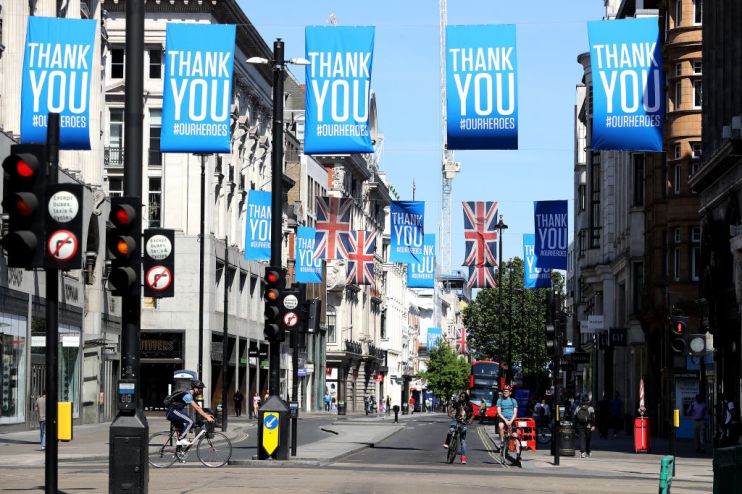Record contraction expected for UK economy in second quarter

The UK economy is forecast to contract by 15 per cent in the second quarter of 2020, a fresh report has said, setting a new record as businesses struggle to operate during lockdown.
The EY Item Club had previously forecast the contraction at 13 per cent, but adjusted the figures to reflect poor economic performance in April and a deeper than expected contraction in the first quarter.
It has also further downgraded its GDP forecast for the UK economy overall, and is now predicting an eight per cent contraction for 2020 compared to the 6.8 per cent fall it predicted in April.
However in a brighter spot, it today predicted year-on-year GDP growth of 5.6 per cent in 2021, up from 4.5 per cent in its previous forecast, suggesting it sees the economy getting back on track next year.
The report warned that the UK economy is still not expected to return to its pre-coronavirus size from the last quarter of 2019 until early 2023.
“The impact of Covid-19 on the UK economy will depend on just how long the pandemic lasts, how many people are affected and how long restrictions to activity have to be in place,” said Howard Archer, chief adviser to the EY Item Club.
“The hope is that while there will undoubtedly be a substantial impact on the economy, it will be restricted in terms of time and there will be limited longer-term repercussions.
Archer added that the UK economy is expected to begin its recovery from the third quarter of this year, as long as the government continues to gradually relax lockdown restrictions.
Consumer spending is forecast to contract by 17 per cent quarter-on-quarter between April and June, and by 8.7 per cent over the whole of the year, before recovering by five per cent in 2021.
“Many people have lost their jobs despite the government’s supportive measures and we’re currently expecting the unemployment rate to increase to around 7.5 per cent in [the third quarter of ] 2020 from 3.9 per cent in the months to March,” said Archer.
“Positively though, consumer purchasing power should also benefit from very low inflation, and we believe consumer price inflation could fall as low as 0.2 per cent over the summer.”
Meanwhile overall UK investment is forecast to fall 13.7 per cent in 2020, with business investment declining 14 per cent. Government spending is forecast to rise 4.5 per cent, while exports of goods and services fall by 11.4 per cent and imports decline by a lesser 10.6 per cent.
Mark Gregory, EY UK’s chief economist, said: “With this interim forecast, we’ve made some significant adjustments to our GDP expectations compared to what the data told us just six weeks ago.
“Over the coming months, companies have a double challenge: they need to respond to the short-term impact of Covid-19 on their business, and they will also need to catch-up to long-term shifts in the economy which have been accelerated by the pandemic.”